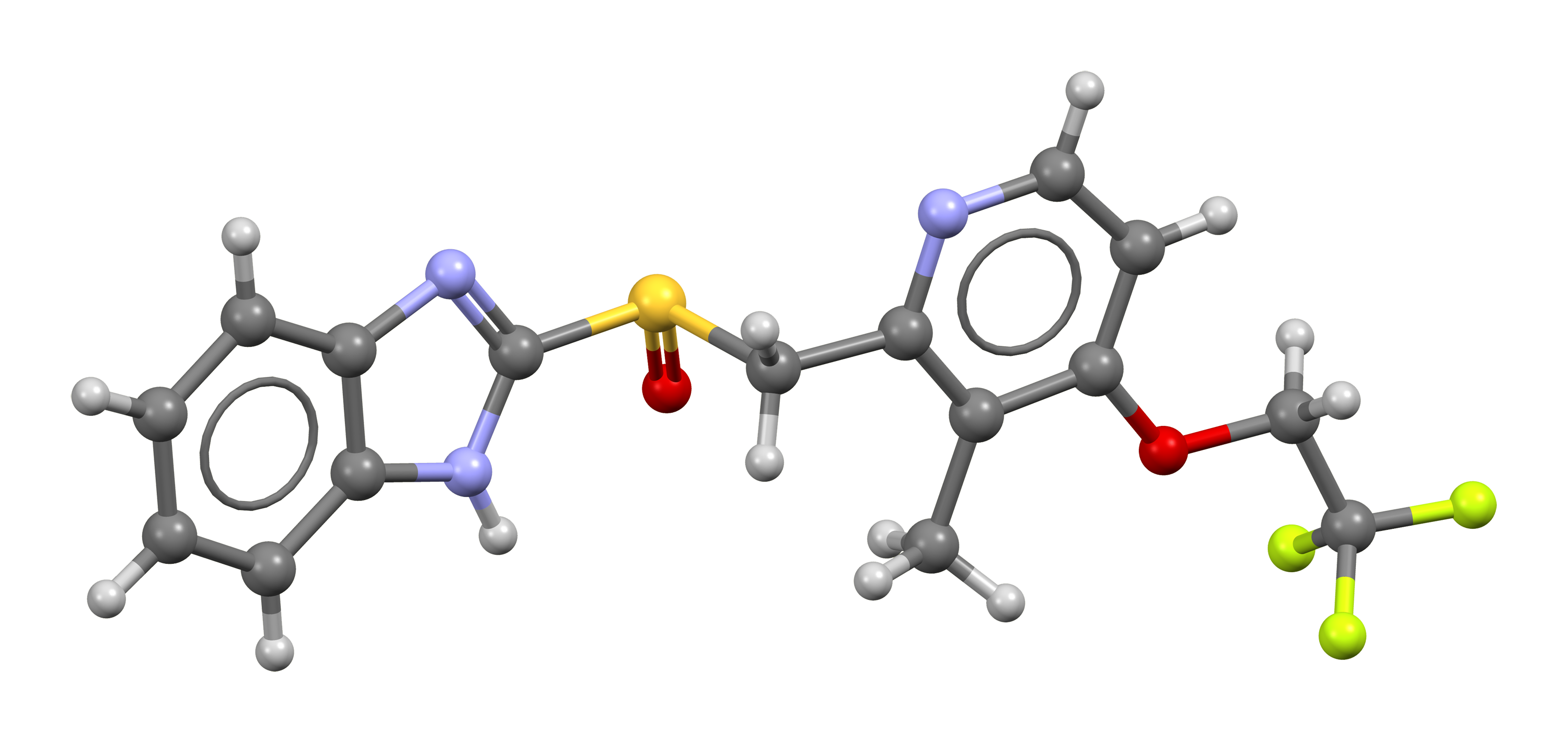| name | Dexlansoprazole |
| classification | Proton Pump Inhibitors (PPIs) |
| pharmacokinetics | Dexlansoprazole is rapidly absorbed after oral administration. Peak plasma concentrations are typically reached within 1-2 hours. It is extensively metabolized in the liver, primarily via CYP2C19, and its active metabolite, a sulfoxide derivative, is further metabolized. The elimination half-life is approximately 4-7 hours. |
| suggested dosage | The typical dosage for most indications is 30 mg once daily. Individual dosage may vary based on specific patient needs and the underlying condition. Consult a healthcare professional for personalized dosage recommendations. |
| indications | | 1 | Gastroesophageal reflux disease (GERD) | | 2 | Symptomatic gastro-duodenal ulcers | | 3 | Erosive esophagitis | | 4 | Zollinger-Ellison syndrome |
|
| safety in pregnancy | Limited data on dexlansoprazole use in pregnancy exists. It should be used during pregnancy only if clearly needed. Consult your doctor about potential risks and benefits. Pregnancy category B (based on animal data, insufficient clinical data). |
| safety in breast feeding | Dexlansoprazole is excreted into breast milk. The potential risks to the infant should be discussed with a healthcare professional. A decision on whether or not to breastfeed should be made based on potential benefits for the mother versus the potential risks to the infant. |
| side effects | | 1 | Headache | | 2 | Diarrhea | | 3 | Constipation | | 4 | Nausea | | 5 | Abdominal pain | | 6 | Vomiting | | 7 | Flatulence | | 8 | Dizziness | | 9 | Fatigue | | 10 | Skin rash | | 11 | Rarely, serious hepatic effects have been reported, particularly in patients with pre-existing liver disease. | | 12 | Rare cases of hypomagnesemia, particularly with long-term use. |
|
| alternatives | |
| contraindications | | 1 | Known hypersensitivity to dexlansoprazole or other components of the formulation. | | 2 | Severe liver disease or active liver problems. |
|
| interactions | Dexlansoprazole may interact with certain medications. Consult your doctor about potential drug interactions. |
| warnings and precautions | | 1 | Use cautiously in patients with renal impairment or a history of QT prolongation. | | 2 | Long-term use of PPIs may increase the risk of fractures, especially in elderly patients. | | 3 | Do not use in patients with known history of Vitamin B12 deficiency or malabsorption as it can be worsened by long term use of PPIs. |
|
| additional informations | | 1 | Dexlansoprazole is a potent inhibitor of gastric acid secretion. Long-term use of PPI should be monitored and the patient should be informed on need for regular checkups and blood tests | | 2 | It is essential to inform your doctor about all medications (prescription, over-the-counter, herbal remedies, etc) that you are taking, as well as any existing medical conditions. |
|
| patient specific details | | age | 25 years | | weight | 70 kg | | note | The provided information is for educational purposes only and should not be considered as medical advice. Always consult a healthcare professional for any health concerns or before making any decisions related to your health or treatment. |
|

